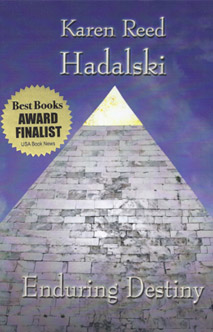Including all the world news of the week, the birth of Will and Kate’s new son still tops the lists of many. Even of those of us living “across the pond” who claim to have no interest in the U.K. Monarchy and customs.
Never mind that many viewed Prince William’s mom, Diana, as a fairy tale life run amuck and followed her sons’ lives with compassionate interest since her death–a baby’s birth always evokes special interest, hope, and happiness.
Religions mark a birth in special ways: By baptism, christening, circumcision, and customs not so familiar to Westerners. For example, in Islam the new arrival is welcomed by his or her father who whispers a special message in the infant’s right ear, calls his child to prayer, and awakens its sense of taste by placing a bit of something sweet on his or her tongue.
On the 7th day, the baby’s head is shaved, weighed, and an equivalent amount of silver is donated to charity. Hindu’s also shave the baby’s head but, in India, the hair is sprinkled into the Ganges River.
In all cultures, gifts are presented to the infant, birth announcements are sent out, and great care is given to the choice of a fitting name. The Chinese wrap baby gifts in red–to portend happiness–and spend a lot of time choosing just the right name. They place so much emphasis on naming because they believe this–along with the number of letters/characters in the name’s spelling–plays a significant role in determining a child’s fate and direction in life.
I think that, to a greater or lesser degree, we all believe this. At this writing, the Royal’s are still poring over the new Prince’s name and very many of us check-out the traditional meaning of a name we like before ascribing it to our baby’s birth certificate.
As far as determining our future goes, perhaps once we learn the meaning of our names it plays at least a subconscious role in determining our self-image. I’ve known some people who absolutely hated their names–even to the extent of legally changing them. Some dislike being given a family, rather than a uniquely individual, name while others find inspiration in being named for a relative or famous person who achieved great things. And some do, indeed, live up (or down) to the names bestowed upon them.
In my case, “Karen” is the Norwegian form of “Katherine,” which means “pure.” However, it is my middle name–“Patricia”–which holds greater significance as I have always identified with the Irish side of my heritage and was born on St. Patrick’s Day. If you don’t know the traditional meaning of your name, look it up! You might be surprised at what you find.
Finally, those who receive the sacrament of confirmation in their church are given an opportunity to choose a third name for themselves. Some, like my husband, stick with their middle names. His is “Michael” and what could top an archangel’s energies? I, being an animal and nature lover, was thrilled to be given the opportunity to choose and add “Francis” to Karen Patricia.
Even if your faith expression doesn’t celebrate such a rite of passage, you can always go the secular route and legally change or add-on to your given name. A friend, one of those named for and by a relative she didn’t especially admire, changed her first name along with her last on her wedding day. Another–a “VI” in a long line of “Roberts”–legally added “Erhard” to his name. This means “honorable and brave” and gave him something higher to aim for than simply producing a “Robert VII.”
As I finish this, I just received a news flash that the new Prince of Cambridge has been named “George.” Obviously his parents took their time in choosing a name that befits both his status and the kind of person they wish him to become. William was raised to be among and was socialized with “commoners.” Kate, herself, comes from a “regular” middle-class family. And, the infant Prince is, of course, third in line for the throne. “George” means “farmer, earth-worker ;” additionally, St. George the Dragon Slayer is Patron Saint of England as well as the name of five former British Kings. Right on! What’s in a name? Quite a lot, I think.



